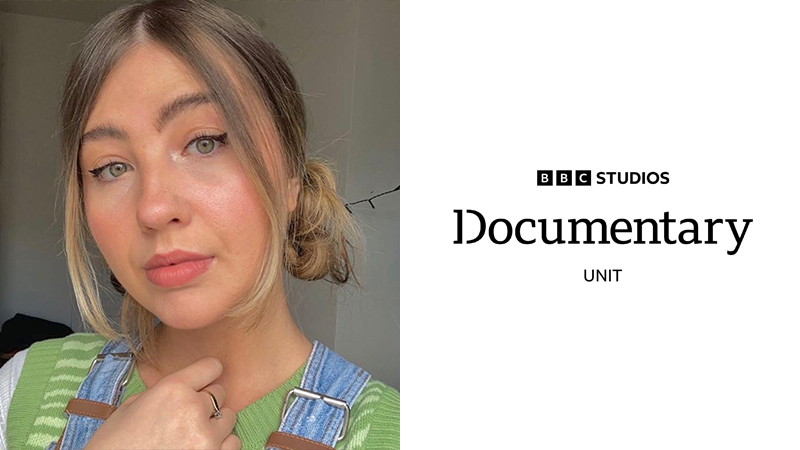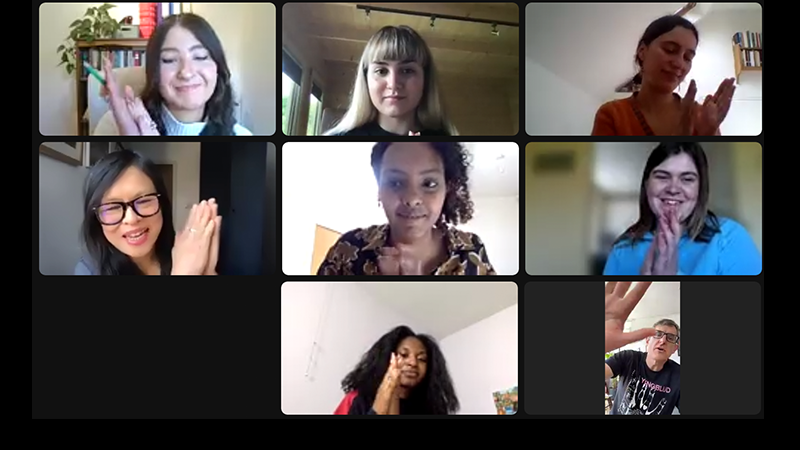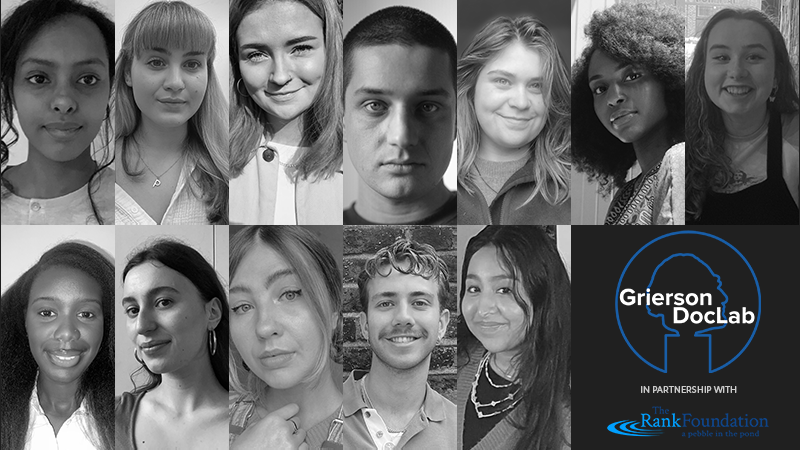January 10, 2024
Grierson DocLab trainee Mel Rawson on her BBC Studios Documentary Unit placements
I was lucky enough to be offered a four-week placement at BBC Studios’ Documentary Unit in Salford, with my time split across two different shows.

2023 Grierson DocLab core trainee, Melanie Rawson.
Rip Off Britain
For the first two weeks, I was based in the Rip Off Britain team as a researcher. After a quick tour around the building and a few trips to the wrong floor in the slightly confusing BBC lifts, I was straight into researching and fact-checking.
I loved the range of stories I got to work on in that first week - from tracking down airline twilight baggage drop options to talking to victims of a classic “Hi Mum and Dad” text scam. One skill I’ll take away from that first week is being able to juggle a huge range of tasks and stories at once. I would email an airline, call a contributor and track down evidence from a Financial Ombudsman ruling, then turn this all into story briefs within the space of half an hour.
Week two was filming week! This meant early starts, a lot of coffee-fuelled cue card writing and of course meeting the iconic trio of Julia Somerville, Gloria Hunniford and Angela Ripon.
I’m incredibly grateful in particular to Chris Walker and Lizz Martin for giving me the freedom to jump into all areas of the production during filming week. I was able to move between the gallery and the studio and even got a quick peek into the edit. All this, alongside preparing briefs for presenters and producers and writing scripts for the items I had been working on.
Seeing how all the different parts of the production worked simultaneously to create an end product was hugely beneficial for me, especially as someone brand new to the world of TV. The hands-on experience and subsequent range of knowledge and skills that I can carry with me into any future role made all the long, crowded train journeys worth it. Catch me typing away on my laptop behind Gloria Hunniford on a TV screen near you!
The One Show
After a quick return to my usual 9-5 job for a week, I was back down in Salford, stepping off the tram at Media City. This time I was in The One Show development team, which happened to be just one set of desks over from Rip Off.
Each morning at The One Show started with a whole team meeting where we caught up with everyone’s schedules for the day/week and discussed potential story leads. This then branched off into a more focused development meeting where we kept track of the pitches we were working on that week for VTs and commissioned films.
One of the things I loved about the morning meetings was how open everyone was to hearing my perspective as a new member of the team - particular thanks to Alan Clayton and Gary Butcher for valuing my voice and trusting me with important content. Everyone stressed that the topics I was passionate about covering and the content I was consuming offered a new channel for stories which the team might not have come across – and that gave me the confidence to push my ideas.
The team also emphasised that the spark for a good story could really come from anywhere - an article you’d read on your way into the office, a particularly good chat in the pub or a targeted ad you couldn’t help lingering on when scrolling through Instagram. This encouraged me to be far more open minded in my story gathering. In fact, I realised that often a good pitch is less about the topic you are covering and more about the angle you use to give it a perspective which will really hit home with your audience.
I worked on a range of story pitches across the two weeks at The One Show, everything from a VT on Netflix’s seeming ability to predict intimate details of your life, to a piece around the crippling impacts of perimenopause.
After doing the initial research, I was soon thrown into the deep end and shown how to turn the information I had gathered into a pitch for the commissioning meeting. It took a few chats with the rest of the development team to nail down the specific One Show tone of voice. However, by the end of the week, I had a solid understanding of how to tailor my story pitches for The One Show audience.
Casting contributors for stories was one of my favourite parts of putting a pitch together. This meant talking to lots of new people who were often incredibly passionate about the topic we were discussing or had a unique perspective on a current issue. By chatting with potential contributors, I learned so much about areas I was often brand new to. One particular day, I spent my morning speaking to an international AI expert and then spent my afternoon speaking to a woman who had established a baby bank to support local families. I’m proud to say that the baby bank story I worked on ended up getting commissioned and I can’t wait to see the finished VT on my TV.
At the end of my time at The One Show, I came away with a renewed sense of appreciation for the work done by the development team and a renewed passion to work on the range of stories I’d been given the chance to contribute to.


